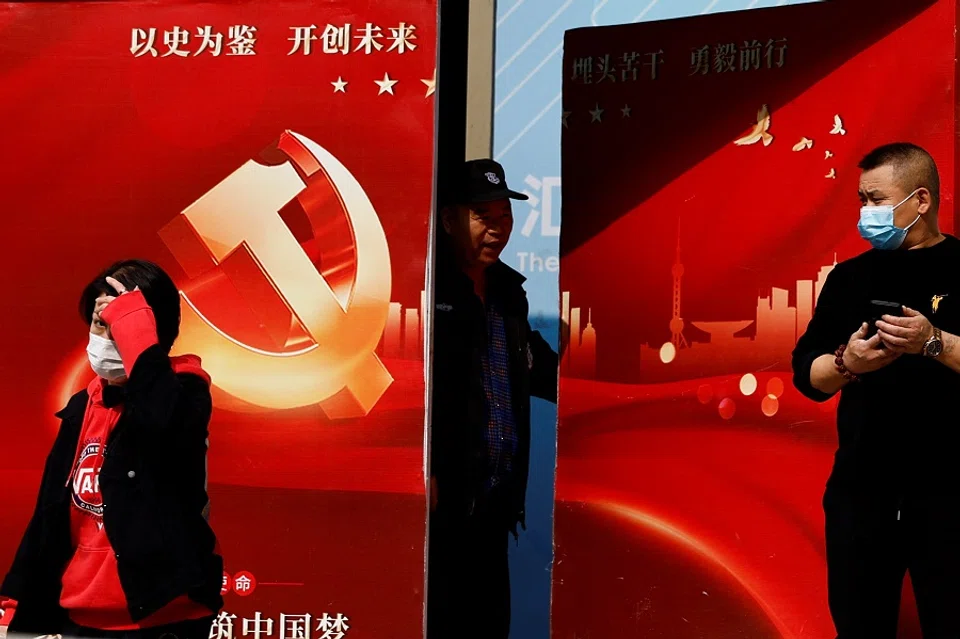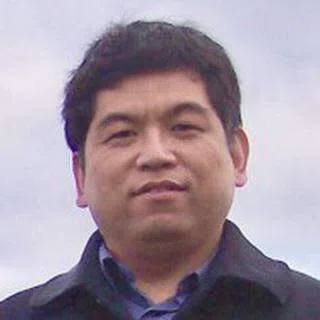Who might be the Chinese premier next year?
While Chinese President Xi Jinping looks set to hold on to his position, the picture is less clear as to Premier Li Keqiang's successor when he steps down next March. Researcher Rongjie Lin goes through the list of possible contenders.

Ahead of the Communist Party of China (CPC)'s 20th Party Congress, China's politics is at a relatively sensitive moment. While overseas public opinion has paid attention to whether Xi Jinping will be re-elected as the general secretary of the CPC Central Committee, it is also worthwhile to discuss another important issue: who will be the next premier of the State Council? Earlier in March, Li Keqiang said that this year would be the last of his premiership. This statement confirms that he will not be re-elected as premier next year.
Reviewing contemporary Chinese history, after Zhou Enlai, all premiers have been selected from current deputy premiers. Hua Guofeng became premier in 1976. A year before that, he was appointed deputy premier, and then acting premier. His successor, Zhao Ziyang, was appointed deputy premier in April 1980, and then became premier in September of the same year. Li Peng was appointed deputy premier in 1983, acting premier in 1987, and became the top leader of the State Council in 1988. His successor Zhu Rongji was appointed deputy premier in 1991, and became premier in 1998. The next premier was Wen Jiabao, who became head of the government in 2003, five years after he was appointed vice-premier. Li Keqiang became deputy premier in 2008, and premier in 2013.

Based on such precedent, candidates for the premiership next year must be selected from the current slate of deputy premiers, namely Han Zheng, Sun Chunlan, Hu Chunhua, and Liu He.
If this unwritten age rule holds during and after the 20th Party Congress, the possibility of Han Zheng's re-election as a PSC member is low, and so is that of his election as premier in 2023.
Possible ascendants to the premiership
Ranked first of all the deputy premiers is Han Zheng, a member of the Politburo Standing Committee (PSC). He was a former party secretary of Shanghai, and is regarded as a member of the Shanghai clique. He was born in April 1954, and will be 68 years old when the 20th Party Congress is held. Some commentators believe that there is a rule for PSC members to stay on at 67 years old and to retire when they are 68. If this unwritten age rule holds during and after the 20th Party Congress, the possibility of Han Zheng's re-election as a PSC member is low, and so is that of his election as premier in 2023.
Ranked second of all the deputy premiers is Sun Chunlan, who was born in May 1950, and will be 72 years old when the 20th Party Congress kicks off on 16 October. It is certain that she will not be re-elected as a member of the Politburo this year, and not be re-elected as deputy premier or elected as premier in 2023.
Based on the retirement age theory and criterion of being a current deputy premier, Hu Chunhua is most likely to become premier next year.
Ranked third of all the deputy premiers is Hu Chunhua, who is younger than other current deputy premiers. He was born in April 1963 and will be 59 years old during the congress. Perhaps Hu will become a member of the PSC this year, if so, the possibility of him becoming the premier next year cannot be ignored.

Ranked fourth of all the deputy premiers is Liu He, who was born in January 1952 and will be 70 years old during the congress. It can be assured that he will not be re-elected as Politburo member this year, and will not be re-elected as deputy premier or elected as premier in 2023.
Zhu Rongji was re-elected as a PSC member in 1997 when he was nearly 69 years old, and became premier the next year. Based on this precedent, the possibility of Han Zheng becoming premier in 2023 cannot be ignored.
Coming out of left field
Based on the retirement age theory and criterion of being a current deputy premier, Hu Chunhua is most likely to become premier next year. However, this hypothesis is not completely sound, as it seems only to be proven from 2002. Earlier, Zhu Rongji was re-elected as a PSC member in 1997 when he was nearly 69 years old, and became premier the next year. Based on this precedent, the possibility of Han Zheng becoming premier in 2023 cannot be ignored.
Wang Yang, who is a PSC member and also chairman of the National Committee of the Chinese People's Political Consultative Conference (CPPCC), is seen by some commentators as one of the candidates for the premiership. He was born in March 1955, and will be 67 years old during the congress. It is possible that he will be re-elected as PSC member this year. However, based on the convention that all premiers have been selected from current deputy premiers, the possibility that he will be elected as premier is low, although he has served as deputy premier before.
In the past, Li Ruihuan and Jia Qinglin were re-elected as the chairman of the National Committee of the CPPCC for another term, and that could be a possible outcome for Wang.
After Deng Xiaoping, who held the post of chairman of the National Committee of the CPPCC from 1978 to 1983 and was China's top leader, all other chairmen of the National Committee of the CPPCC after him - from Deng Yingchao to Yu Zhengsheng - were not able to climb another step up the power pyramid, including snaring the premier post. This might well be the case too for Wang.
For Lianhe Zaobao's special reports on the 20th Party Congress, click here.
Related: [Party and the man] Ditching presidential term limit an exception not the rule | Birthplace determining political career in the CCP: Countdown to the 20th Party Congress | Countdown to CCP's 20th Party Congress: Financial technocrats in the post-1970s generation | Countdown to 20th Party Congress: Xi Jinping in command as China's party leadership takes shape





![[Photos] Fact versus fiction: The portrayal of WWII anti-Japanese martyrs in Taiwan](https://cassette.sphdigital.com.sg/image/thinkchina/3494f8bd481870f7c65b881fd21a3fd733f573f23232376e39c532a2c7593cbc)